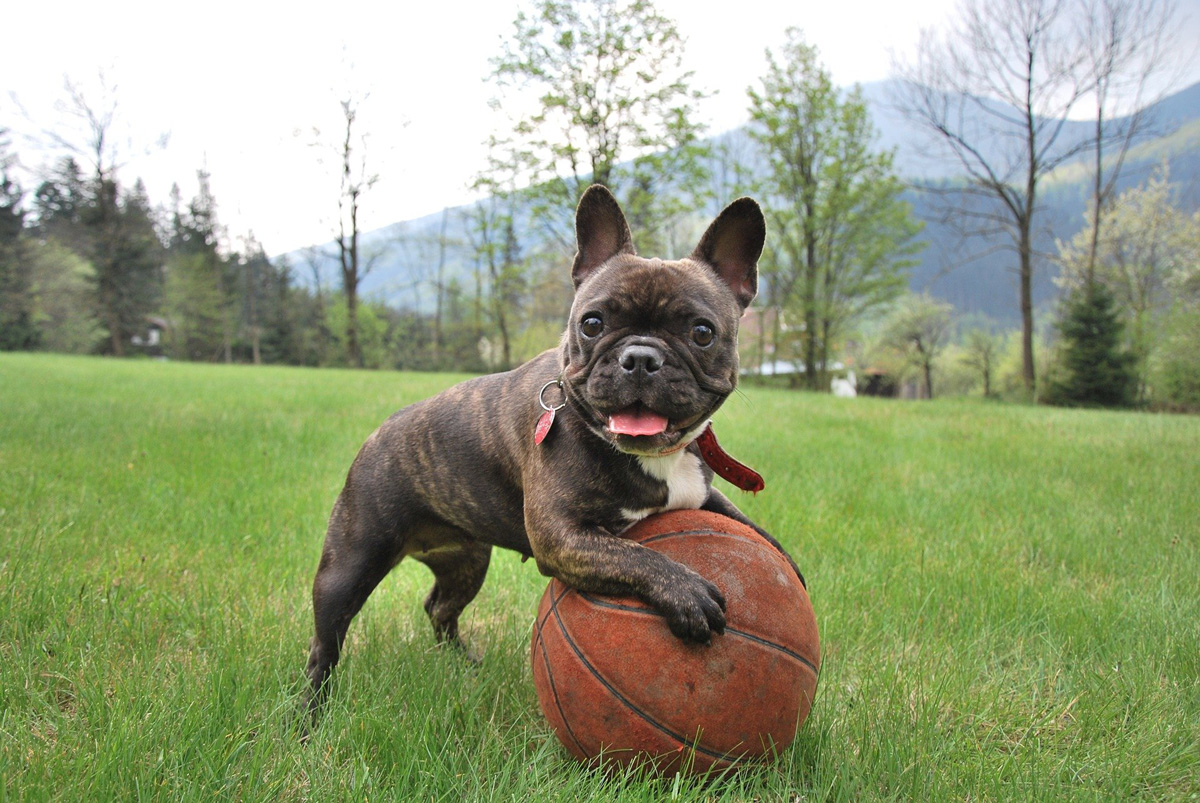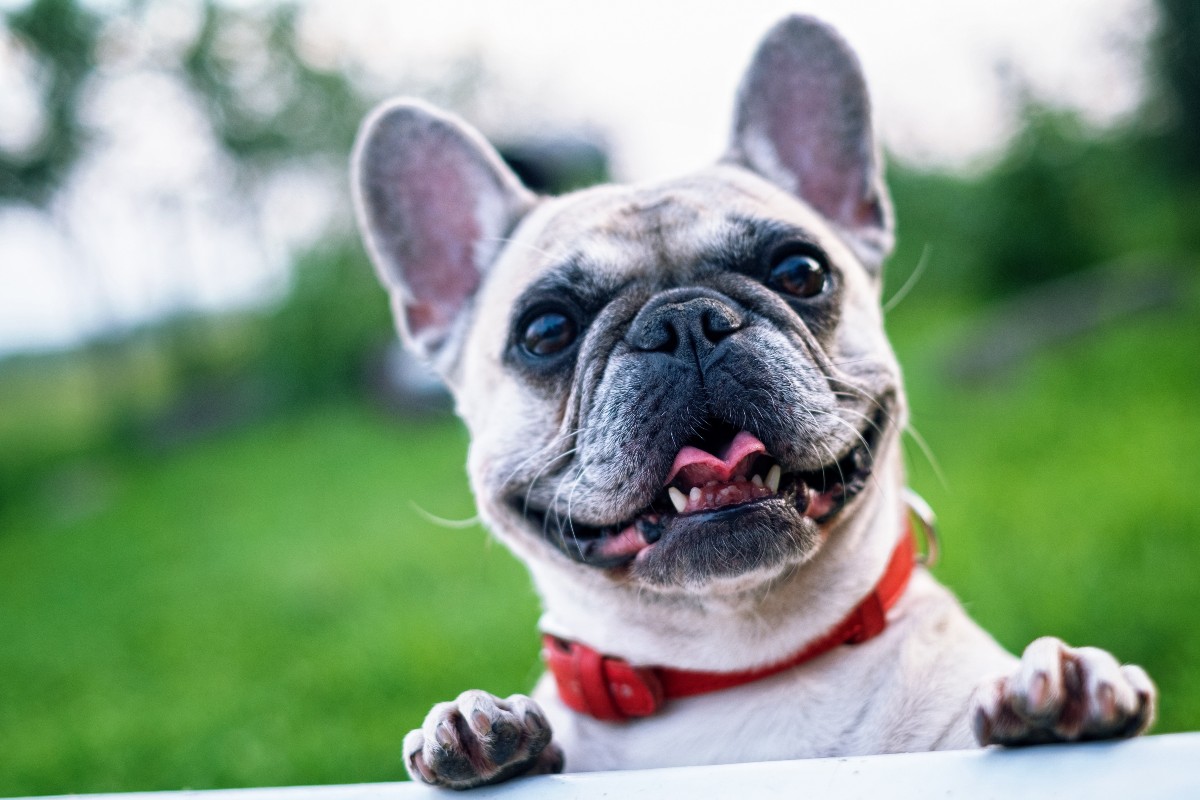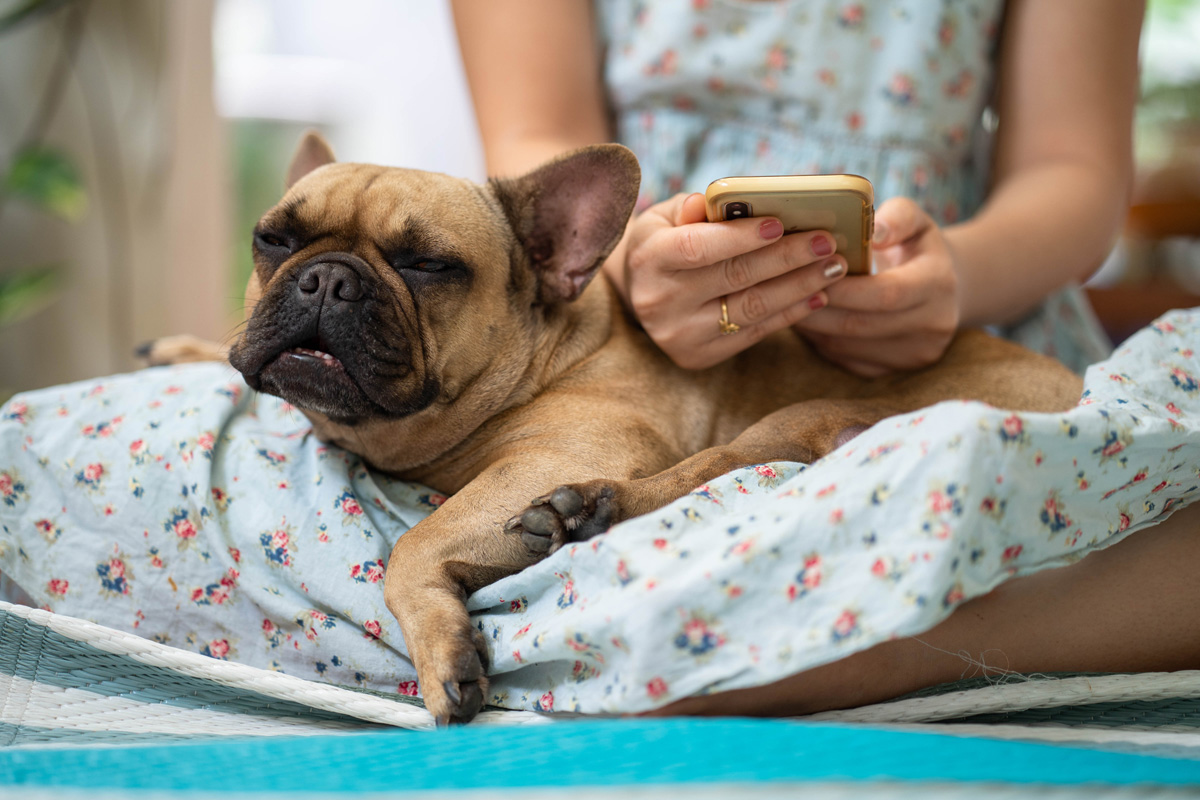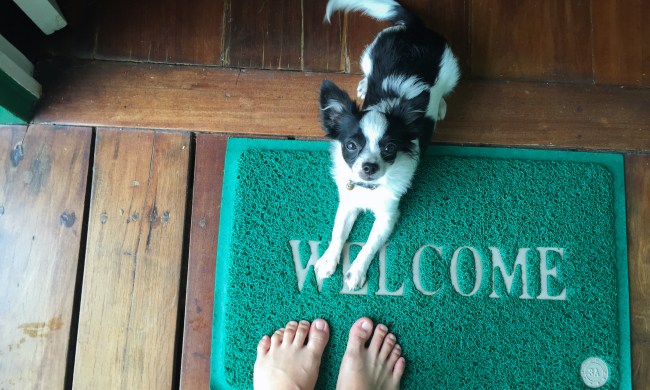With his squished-up face and bat-like ears, the French bulldog is the second most popular dog in both the United States and Great Britain. So, what’s the attraction? Are French bulldogs good pets? Research studies reveal that dogs with squished faces remind people of human infants. This triggers positive emotions and nurturing instincts. A recent study by the Royal Veterinary College, London University found that, while the French bulldog’s adorable face was the initial attraction for owners, the reason they recommend the dogs to others was the breed’s loving personality.
Still, there’s so much to know about this bat-eared breed. Read on for the pros and cons of parenting a French bulldog.

Pros of owning a French bulldog: Love, adaptability, ease of grooming, and more
There are so many reasons to fall in love with this adorable breed!
They have loving personalities
French bulldogs, or Frenchies for short, were bred to be companions. They are loving, loyal, affectionate dogs who just want to be with their people. Sounds great, right?
They are adaptable
According to the American Kennel Club (AKC), Frenchies happily adapt to life with singles, couples, or families with children. They even make great companions for folks living in apartments or other small spaces.
They make great family pets
French bulldogs are on the AKC’s top 10 list of the best family dogs. Their cute looks and playful personalities make them wonderful companions for children, but you’ll still need to help the child and dog learn to interact. To ensure a fulfilling relationship for both experts at the French Bulldog Club of America caution that “rules for behavior need to be established for the dog and the child.” Luckily, training a French bulldog can be done with enough patience, time, and trust.
They are pet-friendly
While all dogs are individuals, Frenchies tend to be outgoing and inquisitive creatures. They usually get along well with cats and other pet species, though a properly trained and socialized French bulldog will also typically get along with other dogs, no matter the size.
They make great watchdogs
According to ASPCA Pet Health Insurance, French bulldogs make excellent watchdogs because “they hardly ever bark without reason.” This also makes them a great fit for anyone living in an apartment, as they won’t disturb neighbors with incessant barking. Remember — training your dog to be a watchdog requires a lot of work for you both!
They love to cuddle
If you’re looking for a cuddle buddy, then a Frenchie won’t disappoint. Frenchies are Velcro dogs; all they want is to curl up beside their favorite people.
Grooming is easy
Frenchies are light shedders. Weekly brushings will help to remove any loose hair while promoting new hair growth and distributing skin oils throughout the coat. A Frenchie’s facial folds should be kept clean and dry and his nails trimmed frequently. Yep — French bulldog grooming is that easy!

Cons of owning a French bulldog: health concerns, costly care, and more
There’s lots of snoring and snorting
French bulldogs are known for their snorting, snoring, and wheezing due to their shortened airway and squished faces. As cute as it can be, having a short snout can restrict the passage of air to the lungs. If you plan to sleep with your Frenchie, his snoring may make it difficult to sleep — though the greater concern should be your pup’s health.
French bulldogs are an expensive breed
If you plan on purchasing a Frenchie from a reputable breeder, you can expect to pay more than $2,000. If you go the adoption route, you can expect to pay more than for other rescues. Adoption fees through the French Bulldog Rescue Network are $900 for dogs 2 to 8 years old and $550 for dogs over 8 years. These fees help defray the cost of medical expenses and the care of the dogs in their foster homes.
They are prone to health problems
According to PetMD, Frenchies are prone to major health problems, including brachycephalic syndrome, intervertebral disk disease, and hip dysplasia. A 2018 study of 2,228 Frenchies by the Royal Veterinary College revealed that 72.4 percent of the dogs had at least one recorded medical disorder. The most common health issues were ear infections, followed by diarrhea and conjunctivitis. The study revealed that when compared to other breeds, French bulldogs were particularly prone to skinfold dermatitis, cherry eye, and brachycephalic obstructive airway syndrome. Many of these health issues can emerge as early as 2 to 3 years of age. So, if you add a Frenchie to your family, you need to be prepared financially and emotionally in the event of health issues.
Frenchies can suffer from separation anxiety
Unfortunately, the one trait that attracts people to Frenchies can also lead to serious behavior issues. These dogs crave affection and companionship. When left alone for too long they can become depressed and suffer from separation anxiety.

If after doing research, you want to add a Frenchie to the family, the next step is where to find your dog. Adopting from a rescue group is always a wonderful option, as you’ll be opening your heart and home to a dog in need. If you prefer to purchase a puppy from a breeder, choose wisely. According to a National Geographic article, in their quest to make the perfect French bulldog, irresponsible breeders ignore health issues, such as chronic respiratory disorders. The Humane Society of the United States offers helpful tips on how to find a responsible dog breeder. It will be worth the effort knowing that your new puppy was bred by someone who put his health and well-being above profits.



